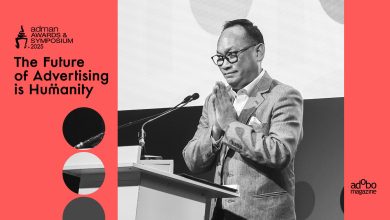SINGAPORE — This year’s Spikes Asia Festival of Creativity brought in the game-changers and biggest names in the creatives industry around the globe, providing delegates with the opportunity to learn and meet these individuals firsthand and be updated on the latest news, trends, and issues that revolve around the industry.
One of the highlights in the pool of sessions at Spikes was Interpublic’s Chairman and CEO Michael Roth for his first-ever appearance on stage in Singapore, to talk about Growth, Diversity and the Future of Advertising, with Campaign Asia-Pacific’s Brand Director Atifa Silk asking all the hard questions.
Atifa Silk interviews Michael Roth on Growth, Diversity and The Future of Advertising at @SpikesAsia #AsiaRising pic.twitter.com/POtv5AE1Fd
Sponsor— adobo magazine (@adobomagazine) September 25, 2019
Since taking the helm of Interpublic in 2005, Roth is credited for the company’s financial pivot that led it towards the path of becoming an industry leader by defining new models that provide value to clients in a rapidly changing media and marketing environment. It’s now one of the world’s largest advertising holding companies.
Roth talked about how strange he found the process of hovering businesses when he first joined the IPG: “If you look at the history of the holding companies, the genesis was to do hundreds of acquisitions and just have these disparate businesses with no connection at all. And the holding company – all they did was count up the profits. And that was it.”
Under Roth, the company disposed of 50 or more businesses and focused on becoming a company that was client-centric .“This business wasn’t about just our own silos. It was about meeting the needs of our clients.”
He credits the feat to diversifying the office and having a relationship with the consumer through the brands and companies they chose. “It’s not just because it’s the right thing to do. Fifty-seven percent of our managers are female now, but if you look at our industry, it’s fairly pathetic in terms of representation of women. And then when you look at people of color and Asians and… we just don’t represent the marketplace, as an industry.” states Roth.
“If we don’t have representation in diversity in terms of thought and insights, then we’re not going to be able to properly reach our consumers and they (women) add significant value to our office,”
He also urges companies to focus on purpose–driven advertising, as brands are looking to develop a relationship with a consumer. An example would be Ikea’s Cannes Lions Grand Prix-winning work “ThisAbles” which focused on 3D-printable add-ons which allowed brand’s furniture to be more accessible to those with disabilities.
Roth elaborated on the impact of such work. “It’s not just the consumers that are using the product,” he said. “Think about how people think about that company now. [This kind of work] develops a relationship that can’t be broken. And, in today’s world, when everybody is fighting commerce competition and price competition, the only way you can compete with that is to develop the value of the brand.”








